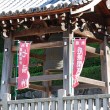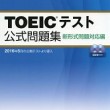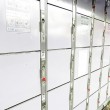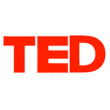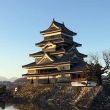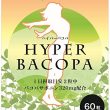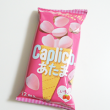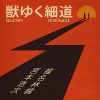オバマ米大統領の広島スピーチ全文。【英語・日本語対訳】

2016年5月27日。オバマ米大統領が広島・平和記念公園を訪れ、歴史的な1日となりました。
オバマ米大統領が被爆者を抱きしめる姿や、折り鶴を寄贈したニュース映像は、日本人にとっては忘れられない瞬間として刻まれることになったでしょう。
そんな中でも、オバマ米大統領のスピーチはとても感動的でした。
その時のスピーチ全文です。
71 years ago, on a bright cloudless morning, death fell from the sky and the world was changed.
71年前の晴れた朝、空から死が降ってきて世界が一変しました。
A flash of light and a wall of fire destroyed a city and demonstrated that mankind possessed the means to destroy itself.
せん光が広がり、火の海がこの町を破壊しました。そして、人類が自分自身を破壊する手段を手に入れたことを示したのです。
Why do we come to this place, to Hiroshima?
なぜ、私たちはこの場所、広島を訪れるのでしょうか?
We come to ponder a terrible force unleashed in the not so distant past.
私たちは、それほど遠くはない過去に、恐ろしいほどの力が解き放たれたことを深く考えるためにここにやってきました。
We come to mourn the dead, including over 100,000 Japanese men, women and children, thousands of Koreans and a dozen Americans held prisoner.
この場所に来て10万人を超える日本の男性、女性、そして子どもたち、数千人の朝鮮半島出身者、数十人のアメリカ人などの犠牲者の死を悼みます。
Their souls speak to us.
犠牲になった人たちの魂が、私たちに語りかけています。
They ask us to look inward to take stock of who we are and what we might become.
もっと内側を見て、私たちはいったい何者かを振り返り、今後、どのようになろうとしていくべきか、私たちに語りかけています。
It is not the fact of war that sets Hiroshima apart.
Artifacts tell us that violent conflict appeared with the very first men.戦争は広島だけが特別なのではなく、暴力的な紛争は古くから行われています。
Our early ancestors, having learned to make blades from flint and spears from wood, used these tools not just for hunting but against their own kind.
われわれの祖先は火打ち石で刃を、木片からやりを作る方法を覚えました。
こうした道具は、ただ単に狩りのためではなく、人類を殺すための武器として使われてきました。On every continent the history of civilization is filled with war, whether driven by scarcity of grain or hunger for gold, compelled by nationalist fervor or religious zeal.
どの大陸でも、あらゆる文明は戦争の歴史に満ちています。
穀物の不足や、金への欲望、あるいは国粋主義や宗教的な理由から戦争が起こってきました。帝国は台頭し、衰退しました。人々は支配され、解放されました。Empires have risen and fallen, peoples have been subjugated and liberated, and at each juncture innocents have suffered — a countless toll, their names forgotten by time.
それぞれの歴史の転換点で罪のないひとが苦しみ、多くが犠牲となりました。
そして、犠牲となった人たちの名前は、時がたつと、忘れられていきました。The World War that reached its brutal end in Hiroshima and Nagasaki was fought among the wealthiest and most powerful of nations.
広島と長崎で残忍な終わりをみた世界大戦は、裕福で力のある国によって戦われました。
Their civilizations had given the world great cities and magnificent art.
これらの国の文明は、すばらしい都市を築き、壮大な技術を生み出しました。
Their thinkers had advanced ideas of justice and harmony and truth, and yet the war grew out of the same base instinct for domination or conquest that had caused conflicts among the simplest tribes, an old pattern amplified by new capabilities and without new constraints.
思想家たちは正義、調和、真実の考えを生み出しました。
しかし、支配したい、制覇したいという思いは、小さな部族でも、争いを生みました。
古くからある思考の在り方が、新しい能力によって、増幅されてきましたが、そこには制約するものはありませんでした。In the span of a few years some 60 million people would die; men, women, children — no different than us, shot, beaten, marched, bombed, jailed starved, gassed to death.
ほんの数年の間に6000万人の人たちが亡くなりました。
私たちと同じ、男性、女性、子どもたちです。
撃たれ、殴られ、行進させられ、拘束され、飢え、毒ガスで殺されています。There are many sites around the world that chronicle this war — memorials that tell stories of courage and heroism, graves and empty camps, the echo of unspeakable depravity.
世界中には、戦争を記しているところや、勇ましく英雄的な行動を伝える慰霊碑があり、墓場やからっぽになった収容所などが、声にならない悪行を伝えています。
Yet in the image of a mushroom cloud that rose into these skies, we are most starkly reminded of humanity’s core contradiction — how the very spark that marks us as a species, our thoughts, our imagination, our language, our tool making, our ability to set ourselves apart from nature and bend it to our will — those very things also give us the capacity for unmatched destruction.
しかし、この空に上がったキノコ雲のイメージのなかに、私たちは人類の矛盾を強く突きつけられます。
私たちを人類たらしめている思考、想像力、言語、道具を作る能力、そして、私たち自身を自然から区別し、思いどおりに自然を変える能力。
そういったものが、私たちに度を超えた、大きな破壊力を与えるのです。How often does material advancement or social innovation blind us to this truth?
物質的進歩や、社会的革新は、こうした真実を見えなくさせるのでしょうか。
How easily do we learn to justify violence in the name of some higher cause?
どれだけたやすく暴力を正当化してきたのでしょうか。
Every great religion promises a path to love and peace and righteousness.
And yet no religion has been spared from believers who have claimed their faith has a license to kill.すべての偉大な宗教は、愛や慈しみ、公正さを説いていますが、決して、信仰が殺す理由になってはいけないのです。
Nations arise telling a story that binds people together in sacrifice and cooperation, allowing for remarkable feats, but those same stories have so often been used to oppress and dehumanize those who are different.
国は台頭し、人々が結束できる理由を探し、犠牲や協力、偉業が生まれますが、同じ理由が人類を抑圧し、異なる人たちを非人間的に扱ってきました。
Science allows us to communicate across the seas, fly above the clouds, to cure disease and understand the cosmos.
But those same discoveries can be turned into ever more efficient killing machines.
科学によって、私たちは海を越えてコミュニケーションを図り、空を飛び、病を治し、宇宙を理解しようとしますが、また、その同じ科学が、効率的に人を殺す道具として使われることもあるのです。
The wars of the modern age teach us this truth.
近代の戦争は、この真実を、私たちに教えてくれます。
Hiroshima teaches this truth.
そして、広島は、この真実を私たちに教えてくれます。
Technological progress without an equivalent progress in human institutions can doom us.
私たちの人間社会が、技術の進歩と同じスピードで進歩しないかぎり、技術はいずれ、私たちを破滅させかねません。
The scientific revolution that led to the splitting of an atom requires a moral revolution as well.
原子を分裂させることを成功させた科学の革命は、私たちの道徳の革命をも求めています。
That is why we come to this place.
だからこそ、私たちはここに来ました。
We stand here in the middle of this city and force ourselves to imagine the moment the bomb fell.
広島の中心にある、この場に立つことで、原爆が落ちた瞬間を想像せざるをえません。
We force ourselves to feel the dread of children confused by what they see.
私たちは、あの日、目にした光景に恐れおののき、困惑した子どもたちの気持ちに、思いをはせなければなりません。
We listen to a silent cry.
私たちは、彼らの悲鳴にも耳を傾けます。
We remember all the innocents killed across the arc of that terrible war, and the wars that came before, and the wars that would follow.
あの酷い戦争、その前に起きた数々の戦争、そして、あの酷い戦争の後に起こりうる、あらゆる戦争で殺害された、罪のないすべての人たちのことを思います。
Mere words cannot give voice to such suffering.
彼らの苦しみとその声は、どんなことばであっても表現しきれないものです。
But we have a shared responsibility to look directly into the eye of history and ask what we must do differently to curb such suffering again.
しかし、私たちは、みな、歴史を直視する責任があります。そしてこのような苦しみを再び起こさないためにも、私たちは何を変えなければならないのかを、自問すべきなのです。
Some day the voices of the Hibakusha will no longer be with us to bear witness.
被爆者の方々から、証言を直接うかがうことは、いずれできなくなるでしょう。
But the memory of the morning of August 6, 1945 must never fade.
しかし、1945年8月6日の記憶は、風化させてはなりません。
That memory allows us to fight complacency.
その記憶によって、私たちは現状に甘んじてしまうことに、あらがうことができます。
It fuels our moral imagination, it allows us to change.
その記憶は道徳的な思索を後押ししてくれます。そして、変わることも可能にするのです。
And since that fateful day we have made choices that give us hope.
あの運命の日以来、私たちは希望を持つことのできる選択をしてきました。
The United States and Japan forged not only an alliance, but a friendship that has won far more for our people that we can ever claim through war.
アメリカと日本は同盟を結んだだけでなく、友情で結ばれました。その同盟と友情は、戦争が奪う命の数よりも、はるかに多くの人たちに恩恵をもたらしました。
The nations of Europe built a union that replaced battlefields with bonds of commerce and democracy.
ヨーロッパの国々も連合をつくり、かつての戦場を商業と民主主義で結ばれた場所に変えました。
Oppressed peoples and nations won liberation.
迫害されている人や国々は自由を求めています。
An international community established institutions and treaties that worked to avoid war and aspired to restrict and roll back and ultimately eliminate the existence of nuclear weapons.
そして、国際社会は国際機関や国際条約を成立させ、戦争を回避するとともに、核兵器を制限し、減らし、究極的には、廃絶させることを追求してきました。
Still, every act of aggression between nations, every act of terror and corruption and cruelty and oppression that we see around the world shows our work is never done.
とはいえ、国家間のあらゆる対立、テロ、腐敗、残虐、迫害といった、世界各地でいまも見られる出来事が、私たちの任務に終わりがないことを示しています。
We may not be able to eliminate man’s capacity to do evil, so nations and the alliances that we formed must possess the means to protect ourselves.
私たちは、人間が悪を行う可能性を完全に消し去ることはできません。だからこそ、国家と、それらの間で結ぶ同盟は、自分たちを守る術を持たなければならないのです。
Among those nations like my own that hold nuclear stockpiles, we must have the courage to escape the logic of fear and pursue a world without them.
しかし、わが国アメリカのように、核兵器をみずから持つ国は、恐怖の論理から脱する勇気を持ち、核兵器のない世界を追求しなければなりません。
We may not realize this goal in my lifetime, but persistent effort can roll back the possibility of catastrophe.
私が生きているうちに、この目標を達成することはできないかもしれませんが、破滅から世界を遠ざける努力を続けなければなりません。
We can chart a course that leads to the destruction of these stockpiles, we can stop the spread to new nations, and secure deadly materials from fanatics.
そのために、核兵器を廃絶するための道筋をつけることができるし、核兵器が新たな国家や狂信者たちの手に渡るのを防ぐこともできるはずです。
And yet that is not enough, for we see around the world today how even the crudest rifles and barrel bombs can serve up violence on a terrible scale.
ただ、それでも足りません。どんなに粗雑な銃や爆弾であっても、すさまじい規模の暴力を可能にするさまを、私たちは今も、世界の各地で目の当たりにしています。
We must change our mindset about war itself — to prevent conflicts through diplomacy and strive to end conflicts after they’ve begun; to see our growing interdependence as a cause for peaceful cooperation and not violent competition; to define our nations not by our capacity to destroy but by what we build; and perhaps above all reimagine our connection to one another as members of one human race — for this too, is what makes our species unique.
私たちは、戦争に対する考え方を変え、外交によって、紛争を回避し、すでに始まった紛争についても、それを終えるための努力を怠ってはなりません。世界の国々は、ますます相互に依存するようになっています。
しかし、それを暴力的な競争ではなく、平和的な協力につなげるべきです。
起こすことのできる破壊の大きさではなく、何を作り出すことができるかで国の価値を判断すべきです。
もしかすると、何よりも必要なのは、私たちがいかに世界の人々と互いにつながっていて、人類の一員であるのか、改めて思いをいたすことなのかもしれません。We’re not bound by genetic codes to repeat the mistakes of the past.
このことこそが、私たちの種の特別さなのです。私たちの運命は、遺伝子で決まっているわけではありません。だから、過去の過ちを再び犯す必要はないのです。
We can learn.
We can choose.
We can tell our children a different story, one that describes a common humanity, one that makes war less likely and cruelty less easily accepted.
私たちは学ぶことができます。選ぶことができます。子どもたちに、これまでとは違う話を伝えることができます。人類に共通の価値観があり、戦争が起こりにくく、今よりも残酷な行いを許さない世界の話を。
We see these stories in the Hibakusha: the woman who forgave the pilot who flew the plane that dropped the atomic bomb because she recognized what she really hated was war itself; the man who sought out families of Americans killed here because he believed their loss was equal to his own.
そうしたものを、私たちは被爆者の方々の話しの中にみることができます。最も憎んでいるのは戦争そのものだとして、原爆を落とした爆撃機のパイロットを許した女性の被爆者の話。肉親を失ったのは自分と同じだとして、広島で原爆の犠牲になったアメリカ人の遺族を探した男性の被爆者の話。
My own nation’s story began with simple words.アメリカという国は、シンプルなことばで始まりました。
All men are created equal and endowed with certain inalienable rights, including life, liberty and the pursuit of happiness.
「すべての人は平等で、生まれながらにして生命、自由、そして幸福を追求する権利を持っている」と。
Realizing that ideal has never been easy, even within our own borders, even among our own citizens.
ただ、こうした理想を現実のものにすることは、アメリカ国内であっても、そしてアメリカ人どうしであっても、決して簡単なことではありません。
But staying true to that story is worth the effort.
It is an ideal to be strived for, an ideal that extends across continents and across oceans.しかし、この理想は大陸や海を越えて共有されるもので、追い求めること自体に大きな価値があるのです。
The irreducible worth of every person, the insistence that every life is precious, the radical and necessary notion that we are part of a single human family: that is the story that we all must tell.
どの人もそれぞれの価値があり、誰の命も貴重なものです。私たちが伝えなければならないストーリーは、私たちはみな、人類という1つの家族の一員だということです。
That is why we come to Hiroshima, so that we might think of people we love, the first smile from our children in the morning, the gentle touch from a spouse over the kitchen table, the comforting embrace of a parent.
それが、私たちが広島に来た理由です。
愛する人たちのことを考えるために。朝、子どもたちが見せる最初の笑顔。妻や夫といったパートナーがキッチンのテーブル越しに見せてくれる気遣い。そして、安心をくれる両親からの抱擁。
We can think of those things and know that those same precious moments took place here 71 years ago.
私たちは、同じような大切な瞬間の数々が、ここ広島で71年前、多くあったことに思いをはせることができます。
Those who died, they are like us.
Ordinary people understand this, I think.亡くなったのは、私たちと同じような人たちです。普通の人たちには理解できると思います。
They do not want more war.
人々はこれ以上の戦争は求めていません。
They would rather that the wonders of science be focused on improving life and not eliminating it.
彼らは、科学のすばらしさが人生を終わらせるためではなく、向上させるために使われることを望むでしょう。
When the choices made by nations, when the choices made by leaders reflect this simple wisdom, then the lesson of Hiroshima is done.
国々が選択をするとき、リーダーたちの選択にこのシンプルな英知が反映されれば、広島の教訓は生かされます。
The world was forever changed here, but today the children of this city will go through their day in peace.
ここで、世界は永遠に変わってしまいましたが、きょう、この町の子どもたちは平和な日々を過ごすことができます。
What a precious thing that is.
それはなんと尊いことでしょうか。
It is worth protecting and then extending to every child.
それは、守り、すべての子どもたちに広げていくべきことです。それは、私たちが選択しうる未来です。
That is a future we can choose, a future in which Hiroshima and Nagasaki are known not as the dawn of atomic warfare, but as the start of our own moral awakening.
広島と長崎を核戦争の始まりとして記憶するのではなく、私たち自身の道徳的な目覚めにしなければならないのです。
今、平和記念公園へ外国人の訪問が増えてきています。
過去の過ちを繰り返さないために広島に来るのだと、彼らはそう口にし、思いをはせています。
オバマ米大統領はその後、「広島の皆さんが歓迎してくれたことを感謝したい」と話していたそうです。
歴史的な1日に出会えたこと、そして平和な今に感謝して、また明日も生きていきましょう。


